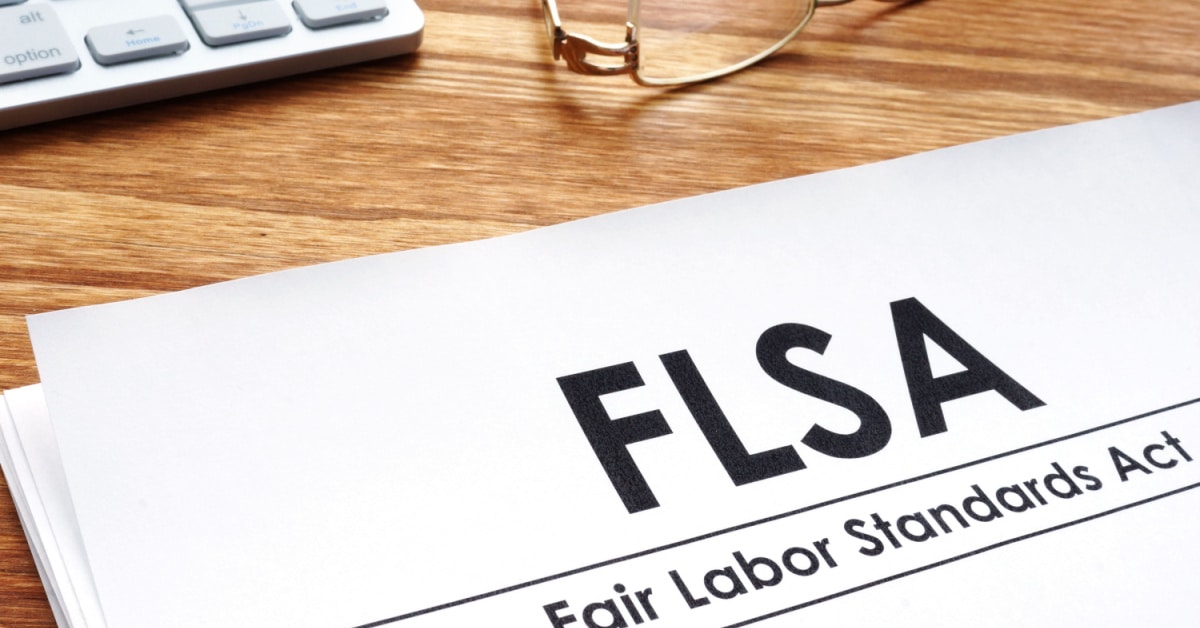Last year the U.S. Department of Labor (DOL) issued a Notice of Proposed Rulemaking stating the Department’s intent to increase the salary requirements for the executive, administrative, and professional (EAP) exemptions under the Fair Labor Standards Act (FLSA). These exemptions allow employers to pay flat annual salaries to qualifying EAP employees without paying overtime, and without regard to the minimum hourly wage requirements.
Employers have long relied on these exemptions to manage their payroll and avoid the additional administrative burdens of tracking EAP employees’ time on the job. However, in response to complaints that the current EAP exemption (or “white collar” exemption) amounts are too low, the DOL proposed a significant increase in its Notice of Proposed Rulemaking issued on September 8, 2023.
At present, the proposed increase in the DOL’s Notice of Proposed Rulemaking remains non-final. Employers are not yet required to comply with the proposed increases—and it is uncertain whether they will take effect. While the DOL indicated in December that it expects to issue a final rule in April of this year, we have not seen any indications that the DOL is making progress toward meeting its self-imposed deadline as of yet.
The FLSA’s White Collar Exemptions: An Overview
Under the FLSA, employers have a general obligation to pay the federal minimum wage to their employees and to provide increased overtime pay to employees who work more than 40 hours in a workweek (as that term is defined in the statute). However, the statute “exempts” employees working in executive, administrative, and professional occupations—meaning that the minimum wage and overtime requirements do not apply. Each of these terms is defined in the DOL’s regulations promulgated under the FLSA:
- Executive employees are those whose, “primary duty is management of the enterprise in which the employee is employed or of a customarily recognized department or subdivision thereof; . . . [w]ho customarily and regularly direct[] the work of two or more other employees; and . . . [w]ho ha[ve] the authority to hire or fire other employees or whose suggestions and recommendations as to the hiring, firing, advancement, promotion or any other change of status of other employees are given particular weight.”
- Administrative employees are those whose, “primary duty is the performance of office or non-manual work directly related to the management or general business operations of the employer or the employer’s customers; and . . . [w]hose primary duty includes the exercise of discretion and independent judgment with respect to matters of significance.”
- Professional employees are those whose, “primary duty is the performance of work . . . [r]equiring knowledge of an advanced type in a field of science or learning customarily acquired by a prolonged course of specialized intellectual instruction; or . . . [r]equiring invention, imagination, originality or talent in a recognized field of artistic or creative endeavor.”
Under the DOL’s current regulations, EAP employees are exempt from overtime if their salary is $35,568 per year ($684 per week) or higher. The DOL’s regulations also include an exemption for “highly compensated employees” who perform EAP-type roles but do not fall neatly into one of the definitions quoted above. The exemption for highly compensated employees currently applies to those who earn a salary of $107,432 or more.
The DOL’s Proposed Increases to the EAP and Highly Compensated Employee Exemptions
In its September 8, 2023 Notice of Proposed Rulemaking, the DOL proposed significant increases to the EAP and highly compensated employee exemptions under the FLSA. If adopted as proposed, the increases would be:
- Proposed EAP Exemption – $55,068 per year ($1,059 per week)
- Proposed Highly Compensated Employee Exemption – $143,988 per year ($2,769 per week)
Again, these remain proposals only. Additionally, the DOL has indicated that the final increases, if any, will be based on earnings as of the date increases take effect.
As a result, the final increased EAP and highly compensated employee exemptions could be even higher than those stated in the DOL’s Notice of Proposed Rulemaking.
But, even with the DOL’s current proposals, the increases could have a significant impact on many employers in South Carolina. If an employee who was previously exempt is no longer exempt under the DOL’s new rules, that employee will become entitled to overtime for hours worked more than 40 per workweek. This will likely require some employers to make significant shifts in how they manage their personnel who qualify as EAPs and highly compensated employees.
While many EAP and highly compensated employees already earn salaries above the DOL’s proposed increased exemption levels, the DOL anticipates that the increases (if adopted) will have a significant economic impact. According to the DOL, employers will incur direct costs of $1.2 billion to adapt to the changes during the first year they are in effect, and the DOL anticipates the increases will, “transfer approximately $1.3 billion per year from employers to employees in the form of increased wages.”
What South Carolina Employers Should Do to Get Ready
While the DOL’s proposed increases to the EAP and highly compensated employee exemptions are not final, they have the potential to significantly impact many employers when (and if) they take effect. With this in mind, what should South Carolina employers do to get ready, as the DOL’s anticipated release date of April 2024 is quickly approaching?
A good first step would be to identify all covered employees whose current salaries fall between the existing and proposed exemption amounts. This will allow employers to assess the scope of the work they may need to do to address the proposed increases. Then, with this information in hand, employers can work with their counsel to determine whether they should consider increasing these employees’ salaries above the increased exemption levels (when they take effect), preparing to pay these employees overtime, or taking another approach that allows them to continue managing their payroll effectively and in compliance with federal law.
Request a Consultation at Bettis Law Group, LLP in Columbia SC
Do you have questions or concerns about the DOL’s proposed increases to the white-collar exemptions under the FLSA? If so, we invite you to get in touch. Please call 803-799-9311 or contact us online to arrange a confidential consultation.






